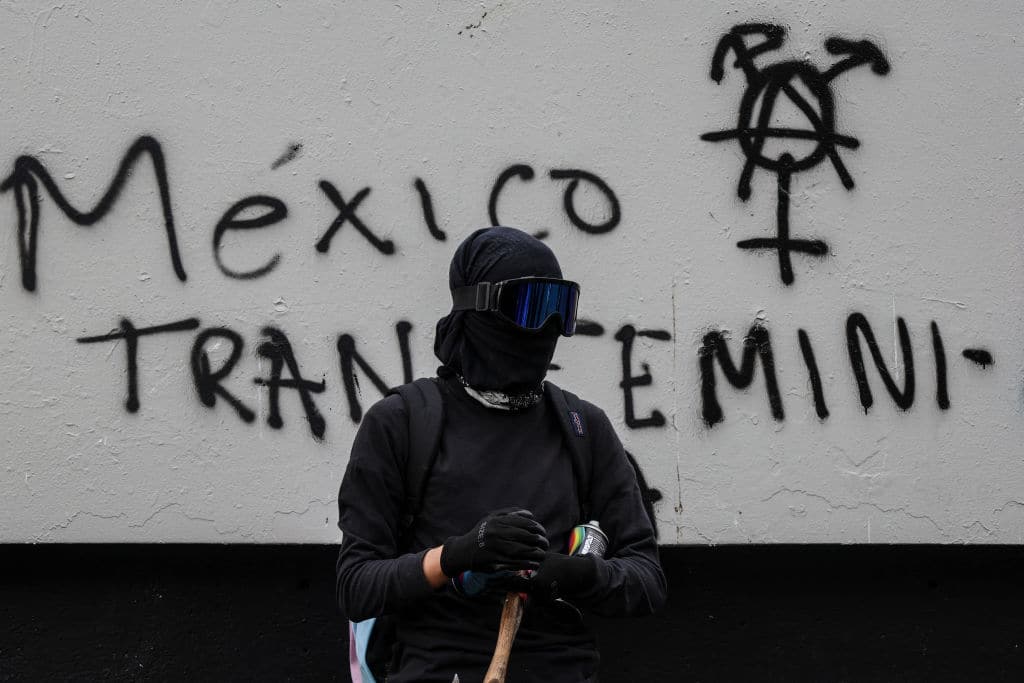A court in Mexico has thrown out an attempt by a transgender activist to force the Catholic Church to doctor baptismal records to reflect a change of sex.
The Twenty-second Federal Circuit Court of Appeals upheld the constitutional rights of the Diocese of Querétaro to refuse to alter church records according to a transgender individual’s self-identification.
The complainant, who says he is a woman, filed a petition against the diocese in 2021, demanding his registered name and male sex was changed on his baptismal records, which the Church had refused to do.
The complainant held that, under Mexican data protection law, the Church had an obligation to submit to the demand irrespective of biological fact and historical accuracy.
The court ruled in favour of the diocese on the grounds that the Church has a constitutionally-protected right to manage its internal affairs without interference from the government.
The ruling was welcomed by Tomas Henriquez, director of advocacy for Latin America and the Caribbean for ADF International, an international legal organisation defending the religious liberty of Christians.
He said: “We are very glad that the court in Mexico has upheld the constitutionally protected autonomy rights of the Catholic Church with this ruling in favour of the Querétaro Diocese.
“Both the Mexican constitution and international law are clear: churches have the right to manage their affairs according to the convictions of their faith. This is a prerequisite for religious freedom.
“As the battle against gender ideology continues, this case sets an important precedent for churches and religious organisations in Mexico, and it is our hope that Mexico will take real steps to improve its religious freedom standing.
“Moreover, this ruling protects the basic right of the church to safeguard the accuracy of its historical records, critical for the purpose of administering its sacraments.”
The diocese was supported by ADF International and represented domestically by Union por las Libertades Fundamentales, a Mexico City-based legal ministry.
The diocese appealed to the court after the Mexican government’s Administrative Agency for Data Protection, which adjudicates on claims of data protection breaches, had decided in favour of the complainant and ordered the Church to comply.
The Supreme Court declined to rule directly on the issue, leaving the appeal court to rule that churches and religious organisations have a constitutional right, granted under articles 24 and 130 of the Mexican Constitution, to manage their internal affairs according to their doctrine, beliefs and norms, thereby upholding the prohibition on unlawful interference from the government.
The court further held that the application of federal personal data protection rules was unconstitutional because it did not adequately consider the right of autonomy for churches under the Mexican law of Church and State separation, and had not included an exemption for record-keeping.
The decision sets an important precedent for upholding the religious freedom and autonomy rights of churches and religious organisations in Mexico.
Photo: A protestor participates in a march towards the National Palace demanding a law that protects transgender rights, Mexico City, Mexico, 31 March 2024. (Photo by Silvana FLORES / AFP) (Photo by SILVANA FLORES/AFP via Getty Images.)
A court in Mexico has thrown out an attempt by a transgender activist to force the Catholic Church to doctor baptismal records to reflect a change of sex.
The Twenty-second Federal Circuit Court of Appeals upheld the constitutional rights of the Diocese of Querétaro to refuse to alter church records according to a transgender individual’s self-identification.
The complainant, who says he is a woman, filed a petition against the diocese in 2021, demanding his registered name and male sex was changed on his baptismal records, which the Church had refused to do.
The complainant held that, under Mexican data protection law, the Church had an obligation to submit to the demand irrespective of biological fact and historical accuracy.
The court ruled in favour of the diocese on the grounds that the Church has a constitutionally-protected right to manage its internal affairs without interference from the government.
The ruling was welcomed by Tomas Henriquez, director of advocacy for Latin America and the Caribbean for ADF International, an international legal organisation defending the religious liberty of Christians.
He said: “We are very glad that the court in Mexico has upheld the constitutionally protected autonomy rights of the Catholic Church with this ruling in favour of the Querétaro Diocese.
“Both the Mexican constitution and international law are clear: churches have the right to manage their affairs according to the convictions of their faith. This is a prerequisite for religious freedom.
“As the battle against gender ideology continues, this case sets an important precedent for churches and religious organisations in Mexico, and it is our hope that Mexico will take real steps to improve its religious freedom standing.
“Moreover, this ruling protects the basic right of the church to safeguard the accuracy of its historical records, critical for the purpose of administering its sacraments.”
The diocese was supported by ADF International and represented domestically by Union por las Libertades Fundamentales, a Mexico City-based legal ministry.
The diocese appealed to the court after the Mexican government’s Administrative Agency for Data Protection, which adjudicates on claims of data protection breaches, had decided in favour of the complainant and ordered the Church to comply.
The Supreme Court declined to rule directly on the issue, leaving the appeal court to rule that churches and religious organisations have a constitutional right, granted under articles 24 and 130 of the Mexican Constitution, to manage their internal affairs according to their doctrine, beliefs and norms, thereby upholding the prohibition on unlawful interference from the government.
The court further held that the application of federal personal data protection rules was unconstitutional because it did not adequately consider the right of autonomy for churches under the Mexican law of Church and State separation, and had not included an exemption for record-keeping.
The decision sets an important precedent for upholding the religious freedom and autonomy rights of churches and religious organisations in Mexico.<br><br><em>Photo: A protestor participates in a march towards the National Palace demanding a law that protects transgender rights, Mexico City, Mexico, 31 March 2024. (Photo by Silvana FLORES / AFP) (Photo by SILVANA FLORES/AFP via Getty Images.)</em>


















